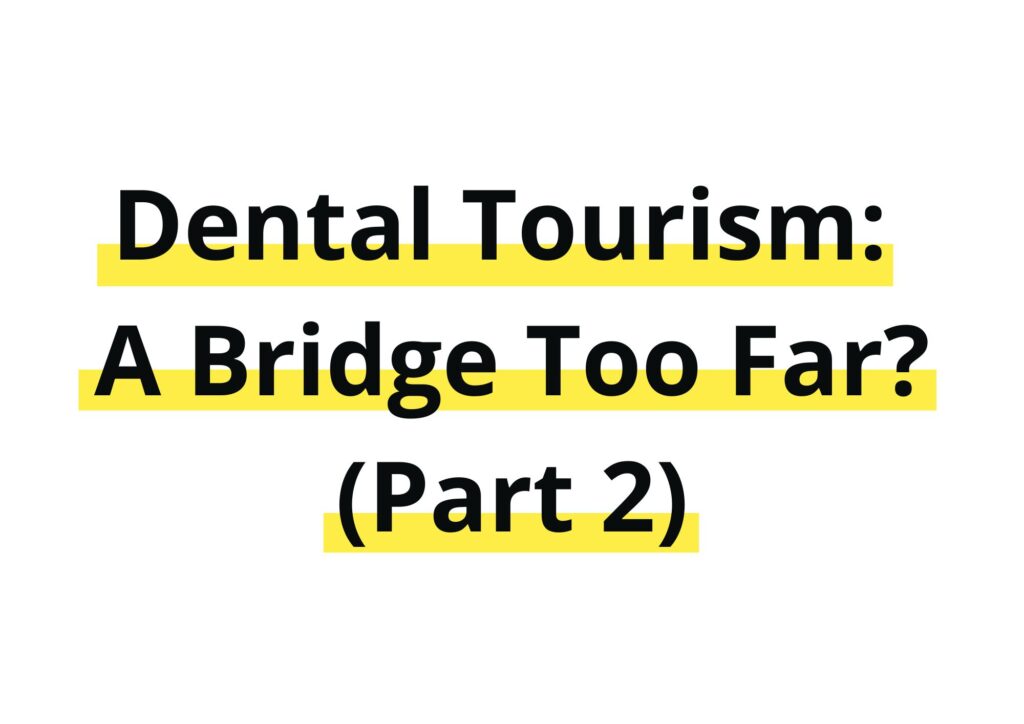

By Leanne.
Share article:
Facts!
Qualifications –
To practise as a dentist in Australia, you must complete an accredited university degree in dentistry, be registered with the Dental Board of Australia and meet the standards for re-registration every year.
Most general dental training takes 5 to 7 years, depending on the pathway.
To become a Dental Specialist, you must be a registered Dentist who has completed at least two years of general dental practice and conducted further study to become registered in a particular specialty.
The amount of further study will vary depending on the area of expertise chosen, for example:
Prosthodontists require an additional three years of full-time training.
To become an Oral and Maxillofacial Surgeon, you must complete 11 years of training, including a four-year training programme with the Royal Australasian College of Dental Surgeons, a degree in medicine or dentistry, and registration as a dentist and medical practitioner in Australia.
This man is a dentist, but we can’t show you his face on TV.
Morning Rob 👋

Regulation –
Dentists in Australia, the USA and the UK must have malpractice insurance and ongoing continuing education programs to maintain registration. Check for regulatory bodies in each country before committing to dental care outside your home country.
General dentists in Mexico, for example, only need a license to perform dental procedures in Mexico; they’ve only had four years of initial training. However, just because they have a dental license doesn’t mean they are qualified to perform root canals or place dental implants. In addition, once a dentist in Mexico gets their license, they’re not required to renew it or keep up to date with industry standards.

If you’re determined to explore dental tourism and combine it with a holiday in a tropical or exotic hot spot to save money, ensure that the dental clinic you are visiting is reputable and employs licensed and registered dentists. Be aware of the dangers, and do your due diligence before going overseas for dental treatments.
Before you commit to dental tourism, especially for extensive dental implant surgery, ask the following questions:
- What qualifications do you have?
- Where did you attend university?
- Which dental board or standards association are you registered with
- What brands of dental implants are used?
- How many implant surgeries have you performed?
- What can go wrong with this treatment
- What happens if things do go wrong
- What warranties do I get?
- How much will it cost to fix any issues
- How are the instruments cleaned and sterilised?
- Where do I report concerns or complaints?
- Do I get a copy of all the X-rays, scans, and a report?
- Who will arrange my ongoing cleaning and maintenance?

Before you travel, consult the following websites for information on any vaccinations required, safe travel tips and health declarations.
Australia – www.smarttraveller.gov.au
USA – check the website Centers for Disease Control (CDC)
UK – www.gov.uk

Disclaimer: The information provided on this platform, including text, graphics, and images, is intended for general informational purposes only. It is not a substitute for professional dental advice, diagnosis, or treatment. For specific dental concerns, it is crucial to consult with a qualified dental practitioner. They will be able to assess your individual circumstances, provide accurate diagnoses, and offer appropriate treatment options tailored to your specific needs
Print article:
Share article:
Subscribe To Leanne's Blog
Ready for your new smile?


